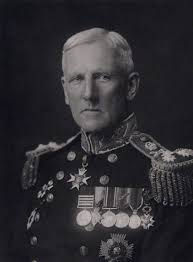So who was Gustav Steinhauer?
- Shaun Lewis
- May 12, 2021
- 2 min read
Yesterday, the BBC mentioned Gustav Steinhauer in connection with the Queen's Speech and its reference to the new Counter-States Threat Bill. So who was he and what is the link to the new security bill?
Prior to WW1, the United Kingdom had no single organisation responsible for counter-intelligence. However, in response to many scare stories of dastardly deeds being plotted by the Germans against Britain, largely stirred up by The Daily Mail and the novelists William Le Queux and Erskine Childers, the government set up the new Secret Service Bureau, the SSB, in 1909. I describe this in my novel Now the Darkness Gathers. Through evolution, an army officer took responsibility for the Home Section, working with existing channels in Special Branch for counter-intelligence (later to become MI5) and a naval officer the Foreign Section, primarily charged with gaining intelligence on the Imperial German Navy and when Germany might go to war (becoming the Secret Service and MI6). The new Bill builds on the legislation that established the SSB.
A namesake of mine was the German Intelligence Service's spymaster in Britain during the period leading up to the outbreak of WW1. W Lewis's real name was Gustav Steinhauer, the head of the British section of the German Admiralty's intelligence service, the Nachrichten-Abteilung or ‘N’ division. He had many other aliases, including the one to which I refer in my novel, Now the Darkness Gathers, Mrs Reimers. He was a German naval officer who had been trained by the Pinkerton Detective Agency for his intelligence duties and he spoke fluent English. Steinhauer was well known to the SSB as he had co-operated closely with Special Branch during Queen Victoria's funeral to help foil an attempt by Russian anarchists to assassinate the Kaiser.
It was not until 1911 that 'N' division began seriously to establish a spy network in Britain. The German Navy's intelligence service was a tenth of the size of that of the army and its focus was on France and Belgium. Steinhauer travelled extensively in Europe, but rarely visited Britain. Instead, he communicated with his agents through a number of intermediaries, mainly German barbers in London. Unfortunately for him, Special Branch had tailed him to one of these barbers' shops during his visit for Queen Victoria's funeral and, henceforth, monitored mail passing through the barber's shop. He did, however, visit Britain immediately prior to the outbreak of WW1, but the SSB had too few men available to mount a full surveillance operation on him. Even so, a few weeks later it was able to round up the entire German spy ring very swiftly.
In my novel, I describe a fictional account to destroy the naval magazines in Kent. In actual fact, the Germans planned to blow up the Bank of England. Had the plot not been uncovered and then been executed, it would have destroyed Britain's economic ability to prosecute the war and changed history. An historian has suggested that this plot was the inspiration for Ian Fleming's book, Goldfinger. Like Ian Fleming, 'Everything I write has a precedent in truth.'







Comments